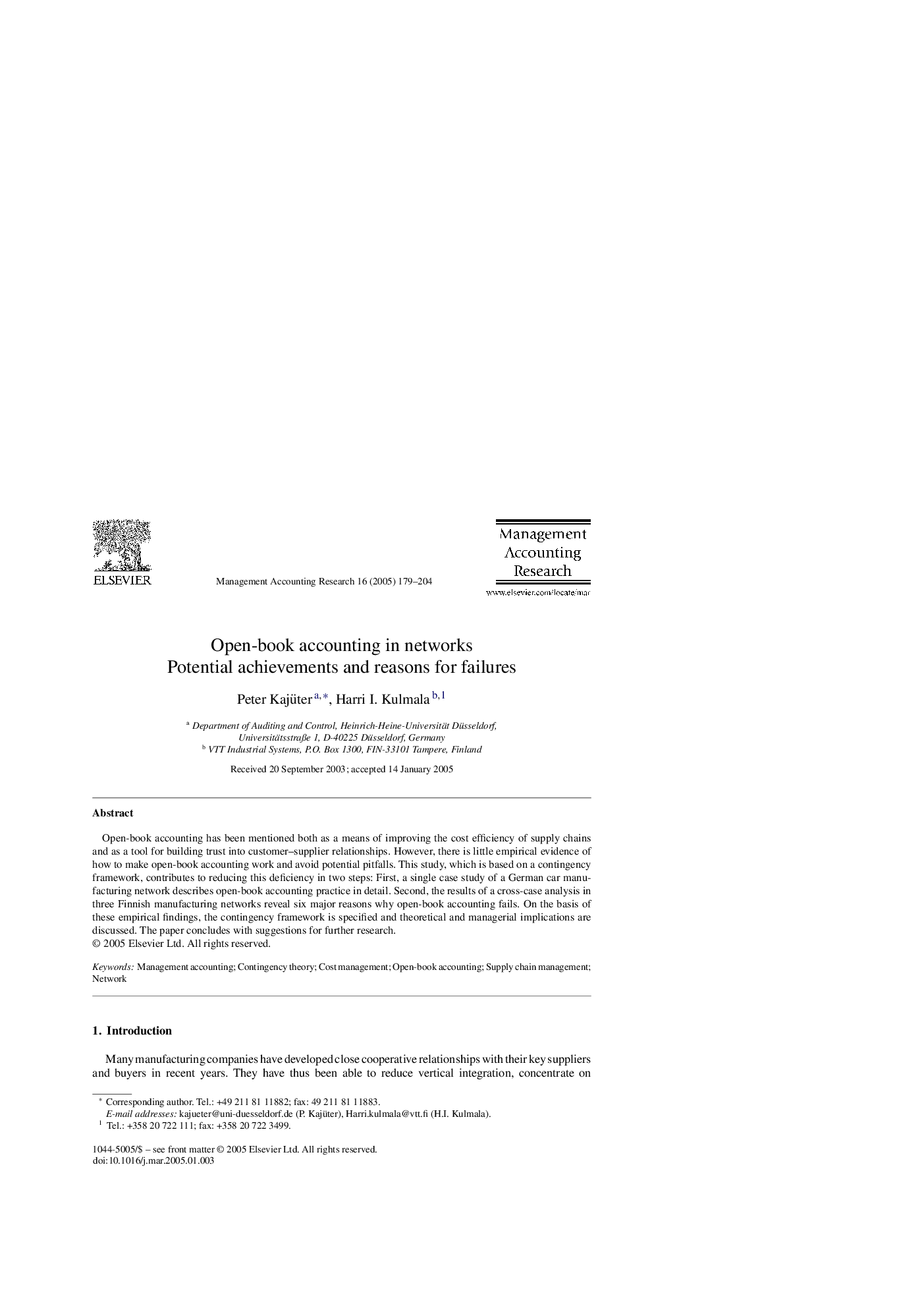| Article ID | Journal | Published Year | Pages | File Type |
|---|---|---|---|---|
| 10488730 | Management Accounting Research | 2005 | 26 Pages |
Abstract
Open-book accounting has been mentioned both as a means of improving the cost efficiency of supply chains and as a tool for building trust into customer-supplier relationships. However, there is little empirical evidence of how to make open-book accounting work and avoid potential pitfalls. This study, which is based on a contingency framework, contributes to reducing this deficiency in two steps: First, a single case study of a German car manufacturing network describes open-book accounting practice in detail. Second, the results of a cross-case analysis in three Finnish manufacturing networks reveal six major reasons why open-book accounting fails. On the basis of these empirical findings, the contingency framework is specified and theoretical and managerial implications are discussed. The paper concludes with suggestions for further research.
Related Topics
Social Sciences and Humanities
Business, Management and Accounting
Accounting
Authors
Peter Kajüter, Harri I. Kulmala,
